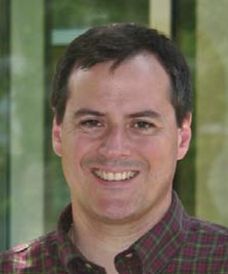Modeling and Control Additive Manufacturing Processes for Ceramics and Glass
Speaker: Dr. Robert G. Landers, Missouri University of Science and Technology
Date: Mar 1, 2019; Time: 2:30pm Location: BPB Rm. 131
 Abstract: Additive Manufacturing (AM), which has been referred to as the 4th revolution in manufacturing, is a truly disruptive class of manufacturing. In AM, location-specific mechanical properties can be tailored by grading materials and microstructure, complex geometries that cannot be manufactured with traditional processes can be fabricated, and cost-effective part repair and low volume manufacturing can be realized. However, AM processes have tremendous variability and are not well understood. This has led to significant research efforts into controlling these processes. This talk will discuss our research efforts in the control-oriented modeling and feedback control of two AM processes. The first process is a ceramic extrusion process known as Freeze-form Extrusion Fabrication (FEF) of ceramics, where an aqueous-based ceramic paste is extruded in a freezing environment. This process is ideal for the fabrication of ceramic parts with complex geometries and multiple materials. We will explore the major variations in this process, empirical modeling techniques to describe its dynamic behavior and construct control-oriented models, and methods to control the extrusion force. We will then transition to our work in the first principle, control-oriented modeling of the extrusion force and filament freezing time, and the understanding of the process that is elucidated from these models. The second AM process we will discuss is a new direct energy deposition process to additively manufacture glass. In the AM glass process, filament or fiber is fed into a molten pool of glass formed by a laser energy source. The process can be used to fabricate fully dense transparent free-form parts for gradient index optics, complex structures for embedded optics and waveguides, and freeform structures that open up the glass design space. We will discuss our work in understanding the process and discovering process parameter spaces suitable for fabrication. Two issues that limit the AM glass process are bubble formation and the challenge of placing the glass in a desired location. We will discuss our work in controlling these two issues and discuss future directions for this process.
Abstract: Additive Manufacturing (AM), which has been referred to as the 4th revolution in manufacturing, is a truly disruptive class of manufacturing. In AM, location-specific mechanical properties can be tailored by grading materials and microstructure, complex geometries that cannot be manufactured with traditional processes can be fabricated, and cost-effective part repair and low volume manufacturing can be realized. However, AM processes have tremendous variability and are not well understood. This has led to significant research efforts into controlling these processes. This talk will discuss our research efforts in the control-oriented modeling and feedback control of two AM processes. The first process is a ceramic extrusion process known as Freeze-form Extrusion Fabrication (FEF) of ceramics, where an aqueous-based ceramic paste is extruded in a freezing environment. This process is ideal for the fabrication of ceramic parts with complex geometries and multiple materials. We will explore the major variations in this process, empirical modeling techniques to describe its dynamic behavior and construct control-oriented models, and methods to control the extrusion force. We will then transition to our work in the first principle, control-oriented modeling of the extrusion force and filament freezing time, and the understanding of the process that is elucidated from these models. The second AM process we will discuss is a new direct energy deposition process to additively manufacture glass. In the AM glass process, filament or fiber is fed into a molten pool of glass formed by a laser energy source. The process can be used to fabricate fully dense transparent free-form parts for gradient index optics, complex structures for embedded optics and waveguides, and freeform structures that open up the glass design space. We will discuss our work in understanding the process and discovering process parameter spaces suitable for fabrication. Two issues that limit the AM glass process are bubble formation and the challenge of placing the glass in a desired location. We will discuss our work in controlling these two issues and discuss future directions for this process.
Biographical Sketch: Dr. Robert G. Landers (landersr@mst.edu) is a Curators’ Distinguished Professor of Mechanical Engineering in the Department of Mechanical and Aerospace Engineering at the Missouri University of Science and Technology (formerly University of Missouri Rolla) and served as the department’s Associate Chair for Graduate Affairs for eight years. He received his Ph.D. degree in Mechanical Engineering from the University of Michigan in 1997. His research interests are in the areas of modeling, analysis, monitoring, and control of manufacturing processes (laser metal deposition, glass direct energy deposition, selective laser melting, freeze–form extrusion fabrication, wire saw machining, metal cutting, friction stir welding), estimation and control of lithium ion batteries and hydrogen fuel cells, and digital control applications. He has over 200 refereed technical publications, including 79 journal articles, an h index of 22 with 1734 citations (Scopus), and $6.4M in funding. He received the Society of Manufacturing Engineers’ Outstanding Young Manufacturing Engineer Award in 2004 and the ASME Journal of Manufacturing Science and Engineering Best Paper Award in 2014, is a Fellow of ASME, a senior member of IEEE and SME, and a member of ASEE. He is currently a program manager at the National Science Foundation, served as associate editor for the ASME Journal of Dynamic Systems, Measurement, and Control (2009–2012), ASME Journal of Manufacturing Science and Engineering (2010–2014), and the IEEE Transactions on Control System Technology (2006–2012), and is currently an associate editor for Mechatronics.